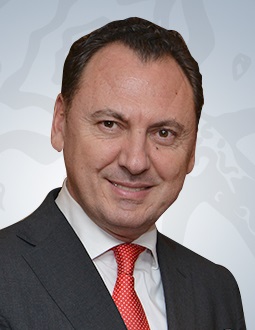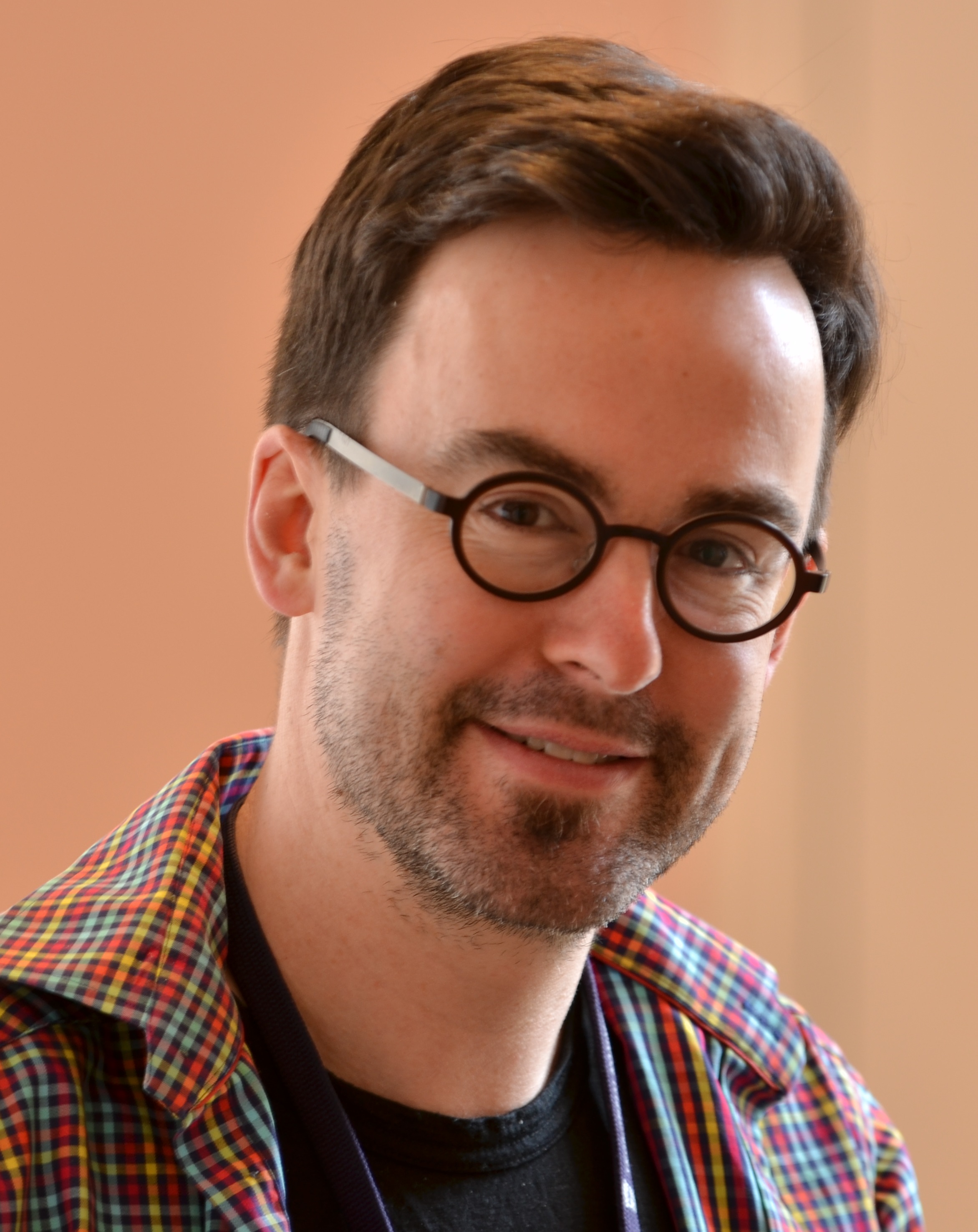WUF10 Networking event on "Governing and managing smart sustainable cities"
Abu Dhabi, UAE, 10 February 2020
Contact: Cristina Bueti
 Martin Brynskov Martin Brynskov
Chairman, Open & Agile Smart Cities, OASC
Martin Brynskov is chair of the global Open & Agile Smart Cities initiative (OASC), which encompasses 150 cities from 29 countries. OASC is a non-profit association based in Brussels, Belgium, and it aims to develop so-called Minimal Interoperability Mechanisms (MIMs) for cities and communities. Dr Brynskov is associate professor, PhD, in Interaction Technologies at Aarhus University in Denmark, director of AU Smart Cities (AUSC) and the Centre for Digital Transformation in Cities and Communities (DITCOM), founder and co-director of the Digital Living Research Commons (DLRC), director of the Digital Design Lab, and fellow at the Center for Advanced Visualization and Interaction (CAVI). Dr Brynskov is coordinator of the European IoT Large Scale Pilot on Smart Cities "SynchroniCity", and the Coordination and Support Action, Next Generation Internet of Things (NGIoT). He is a global expert, speaker and advisor on IoT and smart cities with a human-centric focus. Dr Brynskov is vice-chair of the UN ITU-T Focus Group on Data Processing and Management to support IoT and Smart Cities & Communities (FG-DPM) and chair of the Working Group on Use Cases, Requirements and Applications/Services, and Chair of the Danish Standards Committee on Smart Cities and Communities (ISO TC 268 mirror committee).
|
 Mei Lin Fung Mei Lin Fung
Chair, People Centered Internet and Chair, Impact Network
Mei Lin Fung was on the 2-person skunkworks team that developed the prototype for customer relationship management (CRM) system. She was socio-technical lead for the US Dept. of Defense’s Federal Health Futures initiative. In 2015, she joined “father of the Internet,” Vint Cerf, to co-found the “People-Centered Internet,” committed to ensuring that technology is developed with a “people-centered” focus. She serves on the ASEAN digital payments initiative, and Genomics and Ethics working group of the World Economic Forum. She chairs the Industry Connections Social Impact Measurement working group for the IEEE Standards Association and also chairs the Assessment Committee for the IEEE Humanitarian Activities Committee. From 2017-2018, she was Vice Chair for Internet Inclusion for the IEEE Internet Initiative. She studied at under two future Nobel Economics prize winners. Mei Lin is Singaporean, married to an Australian and has lived for decades in Silicon Valley working at Intel then Oracle. Her first job was a software programmer. Her degrees are in Mathematics (ANU) and Finance (MIT). She represents PCI on the UN organization EQUALS.org and served on the World Economic Forum Global Future Council on Digital Economy and Society.
|
 Okan Geray Okan Geray
Strategic Planning Adviser, Smart Dubai Office, UAE
Dr. Okan Geray has more than 20 years of experience in management consulting in various industries and countries. He has worked in A.T. Kearney global management consulting firm before he joined Dubai Government in 2002. He has worked in Dubai eGovernment, Dubai Smart Government, and more recently in Smart Dubai Office as the Strategic Planning Advisor after its establishment. His responsibilities include Strategic Planning, Strategic Performance Management, Policy Making and Global Thought Leadership. He was the Co-Chair of Enhancing Innovation and Participation Working Group in United for Smart Sustainable Cities (U4SSC) joint global initiative by ITU and UNECE. This working group addressed Smart Governance, Smart Economy and Smart People aspects in smart cities. He has led two deliverables globally in U4SSC; namely “Guidelines on Strategies for Circular Cities" and “City Science Application Framework".
He was the Co-Chair of “Data Economy Impact, Commercialization and Monetization" Working Group in ITU Focus Group on Data Processing and Management. He is also the Co-Rapporteur of ITU Study Group 20 Question 7 on “Evaluation and assessment of Smart Sustainable Cities and Communities". He is a member of SDG11 Global Council. He holds double major B. S. degrees in Industrial and Computer Engineering from Bosphorus University in Istanbul Turkey, an M.S. and a Ph.D. degree in Systems and Control Engineering from University of Massachusetts in USA. He has published journal and conference papers, book chapters and has been an adjunct lecturer in management for 15 years.
|
 Kire Ilioski Kire Ilioski
Director, Office of the Executive Secretary of the United Nations Economic Commission for Europe (UNECE)
Mr. Kire Ilioski is the Director in the Office of the Executive Secretary of the United Nations Economic Commission for Europe (UNECE) from 1 July 2019.
Prior to his appointment as Director in the Office of the Executive Secretary, Mr. Ilioski was appointed as a Special Adviser to the Minister of Foreign Affairs of the Republic of Macedonia.
Mr. Kire ILIOSKI, served as a Permanent Representative of the Republic of Macedonia to the OSCE, UN and other International Organizations headquartered in Vienna as of February 2014-2018. He was a first time Macedonian Governor to the IAEA Board of Governors representing the countries from the East European group to the IAEA Board (October 2014 – September 2016)
Prior to this assignment he served as a Director for International Law at the Ministry of Foreign Affairs of the Republic of Macedonia.
Mr. ILIOSKI also served as a Head of the Permanent Mission of the Republic of Macedonia to NATO, being appointed as a Macedonian Ambassador to the Alliance from April 2008 to 2011.
Mr. ILIOSKI holds a Doctorate in Political Science earned by the European University in Skopje, Republic of Macedonia. His dissertation elaborates the political impacts that the EU financial crisis has over the EU Member States and offers relevant analysis and prospects for future. He also holds a Master’s degree in International Law and Diplomacy.
He speaks English, Italian, Serbian/Croatian and Bulgarian.
 Robert Lewis-Lettington Robert Lewis-Lettington
Chief, Land, Housing and Shelter Section and Secretary, Global Land Tool Network
Robert Lewis-Lettington is Chief of the Land, Housing and Shelter Section at UN-Habitat. Robert has twenty years professional experience, primarily working in multilateral processes and in providing technical assistance in policy formulation and legislative processes to a variety of partners. With field experience in more than fifty countries, Robert’s specialist areas include legislative drafting, urban development, intellectual property rights and information management, digital governance, environment and natural resources, international trade and human rights. Robert is Secretary to the Drafting Committee of the UN Habitat Assembly and was Vice Chair of the International Telecommunication Union’s Focus Group on ‘Data Processing and Management to support the Internet of Things and Smart Cities & Communities.’ Robert is also a Salzburg Global Fellow in Law and Technology, a member of the International Law Association (and its study group on the Role of Cities in International Law) and a member of the Human Rights Lawyers Association (UK).
Robert holds a Juris Doctor degree in law from the College of William and Mary (USA), an MA (Hons) degree specialising in Architectural History from the University of St. Andrews (Scotland) and an MLitt (Dist) degree in History from the University of the Highlands and Islands (Scotland).
|
 Kristian Mjöen
Kristian Mjöen
Project Manager, University City 3.0, Trondheim, Norway
Dr Kristian Mjoen is currently heading a national Pilot, University City TRD3.0, developing a new way of integrating universities and cities to promote societal innovation and sustainable value creation across sectors. The work has been recognised as a Geneva UN Charter Centre of Excellence on SDG City Transition. Kris is heavily invested in finding new ways to inform and develop public sector innovation and works closely with the UN U4SSC Implementation Program to set up a national U4SSC backed project for Norway. He has a particular interest in play and playfulness, and the role of cities and communities as playgrounds in the mobilization of intellectual, social and financial capital towards the realization of the UN 2030 agenda for sustainable development.
|
 Alexander Ntoko
Alexander Ntoko
Chief, Operations and Planning Department, ITU
Alexander NTOKO is the Chief of the Operations and Planning Department in ITU where he plays a critical role in crafting and executing the strategic movements of ITU’s Telecommunication Standardization Sector (ITU-T).
He coordinates ITU activities on the Digital Object Architecture (DOA) and represents ITU in ICANN’s Governmental Advisory Committee (GAC).
Prior to taking up his current position, he was Head of ITU Corporate Strategy Division (CSD) where his responsibilities included ensuring organization-wide consensus and support for the development, implementation and evaluation of the ITU Strategic Plan. He assisted and advised the ITU Secretary-General in policies and strategies and was responsible for the coordination of ITU activities in many areas including Internet and cybersecurity.
He has organized and spoken at many international events on a wide range of global Internet-related public policy issues and has written papers on technology strategies for Internet, ICTs and cybersecurity. As an ITU official, he has travelled to about 100 countries and has developed a broad perspective of ICT policies and strategies.
From the early 1990s, he played key role in the introduction of Internet and Cybersecurity to ITU. Since 1998, he has managed the implementation of projects on Internet, ICT applications (e.g., e-health, e-government, e-agriculture, e-education, e-payment and e-business) and cyber security including the use of advanced security technologies (biometric authentication and Public Key Infrastructure) in developing countries from all regions of the world.
He obtained Bachelors (BSc) and Master of Science (MSc) degrees in Computer Science from the State University of New York.
|
 Reyna Ubeda
Reyna Ubeda
Advisor, ITU
Reyna Ubeda is currently the Advisor of ITU-T Study Group 5 on Environment, Climate Change and Circular Economy. She studied Industrial Engineering and she completed a Master on International Management from the University for Economics and Environment Nürtingen- Geislingen in 2014.
She joined the ITU’s Standardization Bureau in 2015. She is part of the team that supports ITU-T's activities related to IoT, Smart Cities, ICTs, the Environment Climate Change and Circular Economy. Reyna speaks English, Spanish and German.
|